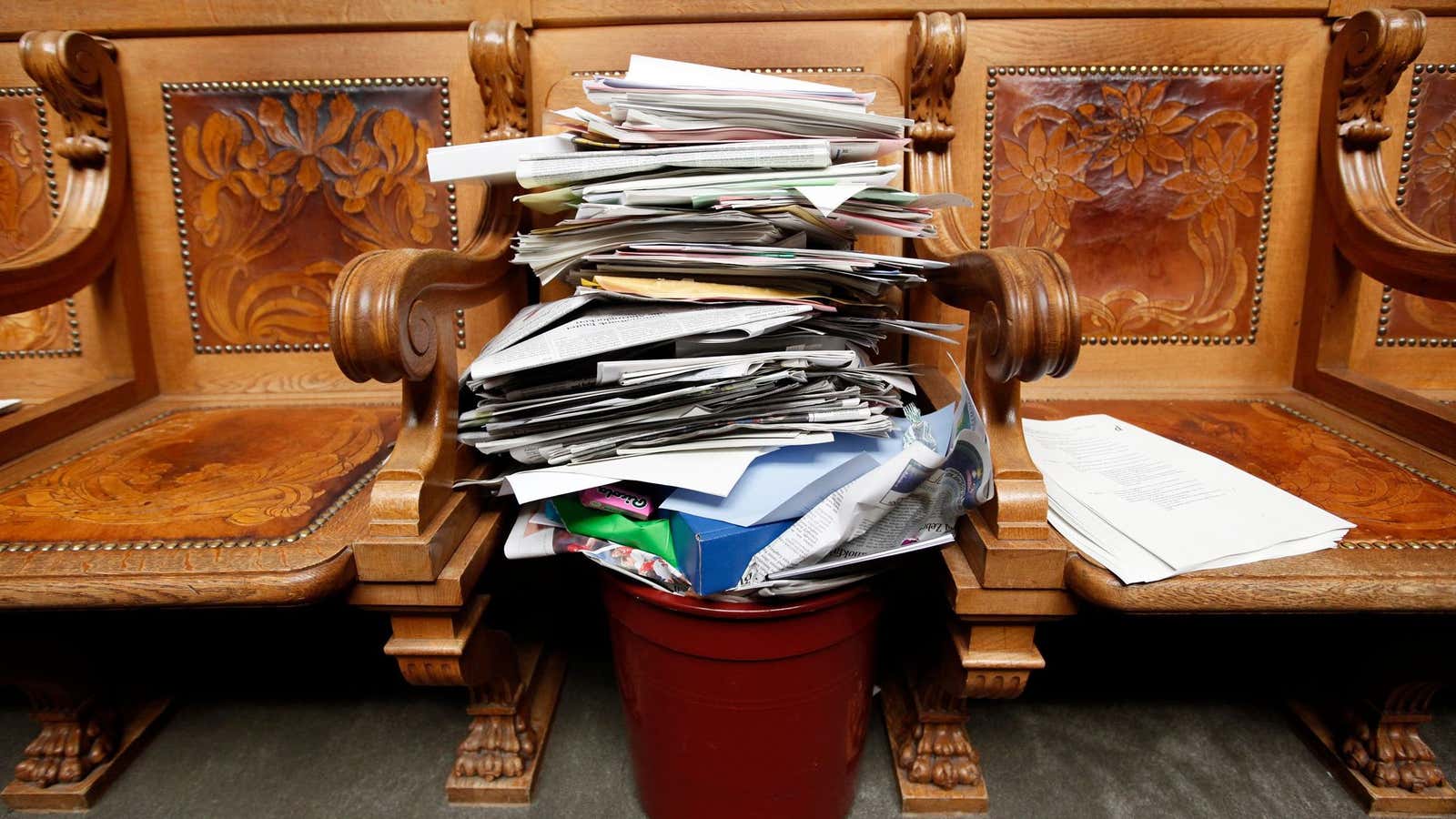In 2018, businesses and consumers around the world seemed to simultaneously turn their back on plastic straws. So it’s only fitting that Collins Dictionary has anointed the term “single-use” as the word of the year.
If you’re a cynic, you might view this as yet another indication of humanity’s destructive tendencies. We are, after all, the reason that single-use items have proliferated, from styrofoam takeout containers to Keurig coffee capsules.
But there is an optimistic way to spin Collins’ word of the year: We’re talking more about single-use items these days because we’re trying very hard to do something about our own wastefulness.
The dictionary’s annual list is based on the usage of new or interesting words that have emerged as cultural phenomena. Runners-up for this year’s word of the year included “gaslight” (manipulating of people by making them question their sanity), “plogging” (picking up litter while jogging), and #MeToo, which has evolved beyond a hashtag to describe a movement against sexual harassment.
Collins defines “single-use” as items “whose unchecked proliferation are blamed for damaging the environment and affecting the food chain.” The dictionary says usage of the word has increased four-fold in the last five years, as “images of plastic adrift in the most distant oceans, such as straws, bottles, and bags have led to a global campaign to reduce their use.”
Our attempts to kick our plastic addiction are admirable, but imperfect. Critics point out that reusable options are more readily available to the wealthy, who are more able to afford metal straws, reusable coffee cups, and fancy tote bags. Others argue that individual consumer decisions fail to challenge the bigger problems of policies that have encouraged us to become a “throwaway society.”
Our “belief that a better form of consumerism will save the planet,” is a mistaken one, argues columnist George Monbiot in The Guardian. “The problems we face are structural: a political system captured by commercial interests, and an economic system that seeks endless growth.”
Still, the downfall of the plastic straw—and the rise of water bottles as status symbols—does show that people are at least invested in taking steps to counter the planet’s destruction. That may be cause for hope.
